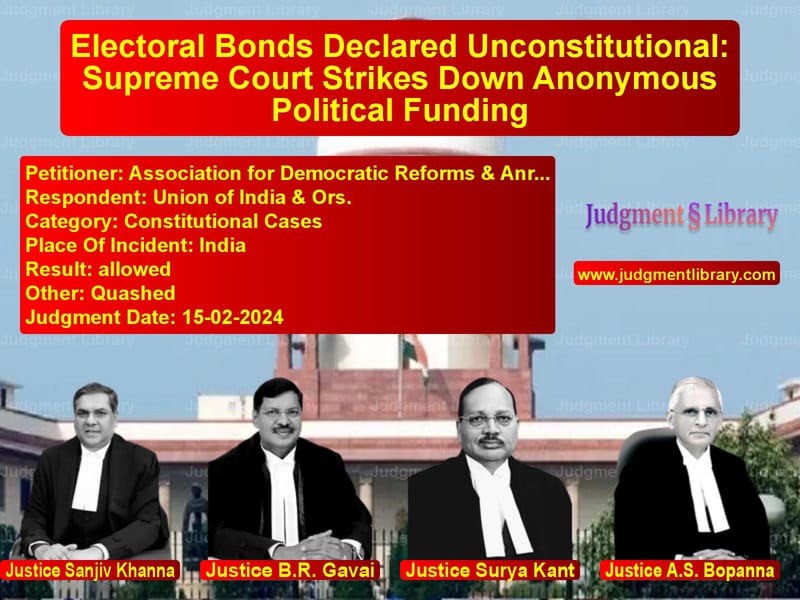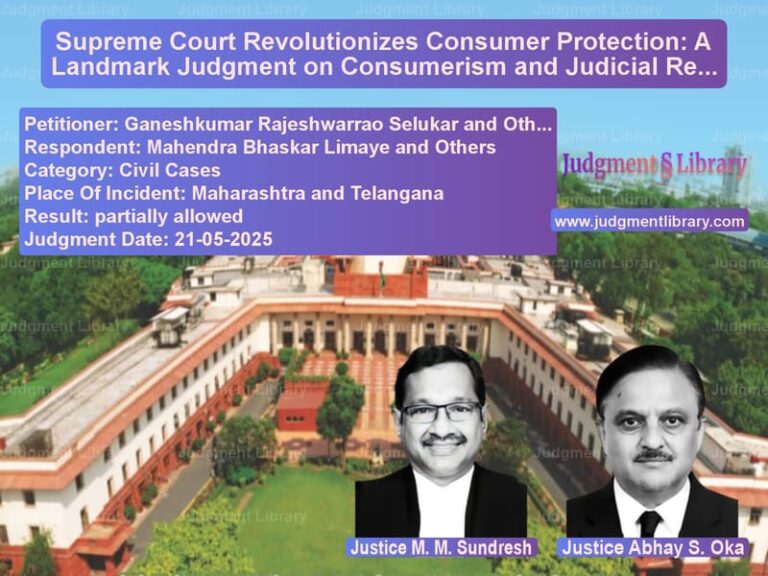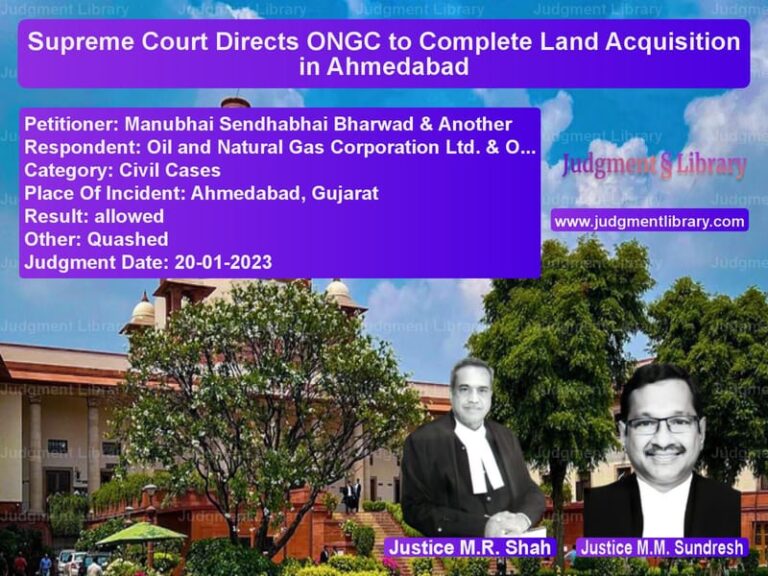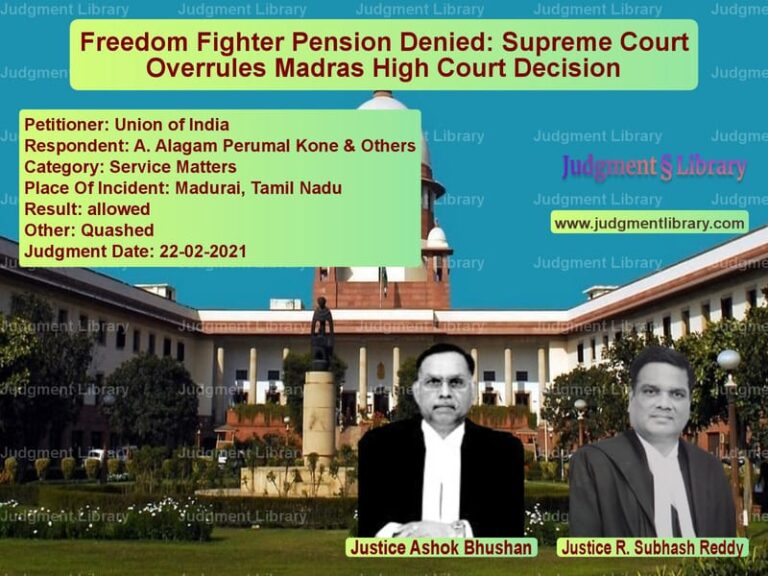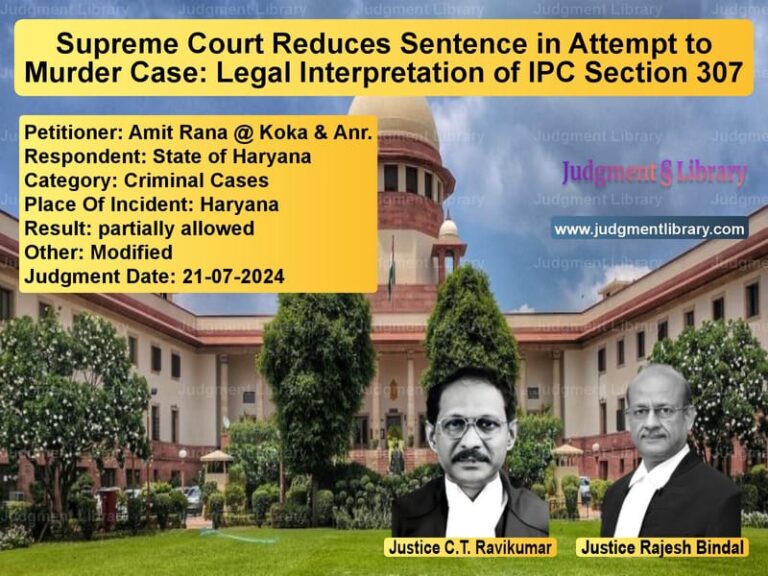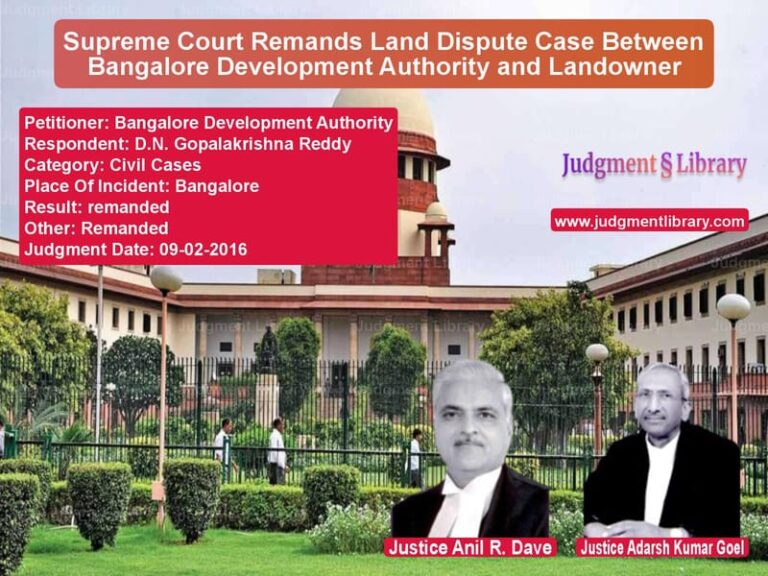Electoral Bonds Declared Unconstitutional: Supreme Court Strikes Down Anonymous Political Funding
The Supreme Court of India, in a landmark judgment, has declared the Electoral Bond Scheme unconstitutional, striking down provisions that allowed anonymous political funding. The judgment, delivered in Association for Democratic Reforms & Anr. vs. Union of India & Ors., found that the scheme violated the fundamental right to information of voters under Article 19(1)(a) of the Constitution. The Court held that transparency in political funding is crucial for free and fair elections and that the scheme disproportionately favored ruling parties while curbing public accountability.
Background of the Case
The case arose from a batch of writ petitions filed under Article 32 of the Constitution challenging the Electoral Bond Scheme, 2018. The scheme, introduced via amendments in the Finance Act, 2017, allowed individuals and corporations to donate to political parties through bearer bonds without disclosing the identity of the donor. The amendments also removed the cap on corporate donations and eliminated disclosure requirements, making political contributions effectively secret.
Key Issues Before the Court
- Whether unlimited corporate funding to political parties violates the principle of free and fair elections under Article 14.
- Whether the non-disclosure of donors’ identities infringes upon voters’ right to information under Article 19(1)(a).
- Whether the amendments introduced in the RBI Act, Representation of the People Act (RPA), Income Tax Act, and Companies Act through the Finance Act, 2017 were constitutional.
Petitioners’ Arguments
The petitioners, represented by senior advocates Prashant Bhushan, Kapil Sibal, and others, argued:
- The scheme allowed unchecked corporate influence in elections, undermining democracy.
- The anonymity of donors increased the risk of quid pro quo arrangements between corporations and political parties.
- The removal of disclosure requirements prevented voters from making an informed choice.
- The amendments to the RPA, IT Act, and Companies Act violated constitutional principles by prioritizing donor secrecy over transparency.
- The Election Commission of India (ECI) had raised concerns about the impact of anonymous donations on the fairness of elections.
Respondent’s Arguments
The Union of India, represented by the Attorney General and Solicitor General, defended the scheme by arguing:
- The scheme was designed to curb black money in political donations by ensuring that contributions were made through legitimate banking channels.
- Donor anonymity was essential to protect contributors from political retribution.
- Article 19(1)(a) does not guarantee a general right to know how political parties are funded.
- Unlimited corporate funding was necessary to encourage private contributions and strengthen political parties.
Supreme Court’s Ruling
After a detailed examination of the constitutional and statutory framework, the Supreme Court held:
- The Electoral Bond Scheme violated Article 19(1)(a) by infringing upon the right of voters to access information about political funding.
- The scheme’s non-disclosure provisions were arbitrary and had a disproportionate impact on electoral transparency.
- Unlimited corporate funding distorted the level playing field in elections and led to excessive influence of money in politics.
- The amendments to Section 13A of the Income Tax Act, Section 29C of the Representation of the People Act, and Section 182(3) of the Companies Act were unconstitutional.
Key Observations by the Court
Chief Justice D.Y. Chandrachud, delivering the judgment, emphasized:
“Transparency in political funding is an essential component of free and fair elections. The right to information of the voter is directly affected when financial contributions to political parties are kept secret. The Electoral Bond Scheme, by anonymizing political funding, creates a situation where economic power translates into political power without public scrutiny.”
On corporate funding, the Court noted:
“The removal of the cap on corporate donations through the Finance Act, 2017 allows for unchecked corporate influence over political parties. This strikes at the root of democratic accountability and violates the principle of equality in the electoral process.”
Impact of the Judgment
The Supreme Court’s ruling has far-reaching implications for political financing in India:
- Political parties will now be required to disclose all donations received, including those made through Electoral Bonds.
- Corporate funding will be subject to greater transparency and scrutiny.
- The ruling strengthens the Election Commission of India’s mandate to ensure fair elections.
- Future legislative reforms on political funding must adhere to constitutional principles of transparency and fairness.
Conclusion
The judgment in Association for Democratic Reforms vs. Union of India marks a significant step towards electoral transparency in India. By striking down the Electoral Bond Scheme and restoring disclosure requirements, the Supreme Court has reinforced the principle that voters have a right to know who is financing political parties. This decision upholds the integrity of the electoral process and ensures that money power does not overshadow democratic accountability.
Petitioner Name: Association for Democratic Reforms & Anr..Respondent Name: Union of India & Ors..Judgment By: Justice D.Y. Chandrachud, Justice Sanjiv Khanna, Justice B.R. Gavai, Justice Surya Kant, Justice A.S. Bopanna.Place Of Incident: India.Judgment Date: 15-02-2024.
Don’t miss out on the full details! Download the complete judgment in PDF format below and gain valuable insights instantly!
Download Judgment: association-for-demo-vs-union-of-india-&-ors-supreme-court-of-india-judgment-dated-15-02-2024.pdf
Directly Download Judgment: Directly download this Judgment
See all petitions in Fundamental Rights
See all petitions in Constitution Interpretation
See all petitions in Public Interest Litigation
See all petitions in Legislative Powers
See all petitions in Separation of Powers
See all petitions in Judgment by Dhananjaya Y Chandrachud
See all petitions in Judgment by Sanjiv Khanna
See all petitions in Judgment by B R Gavai
See all petitions in Judgment by Surya Kant
See all petitions in Judgment by A. S. Bopanna
See all petitions in allowed
See all petitions in Quashed
See all petitions in supreme court of India judgments February 2024
See all petitions in 2024 judgments
See all posts in Constitutional Cases Category
See all allowed petitions in Constitutional Cases Category
See all Dismissed petitions in Constitutional Cases Category
See all partially allowed petitions in Constitutional Cases Category

